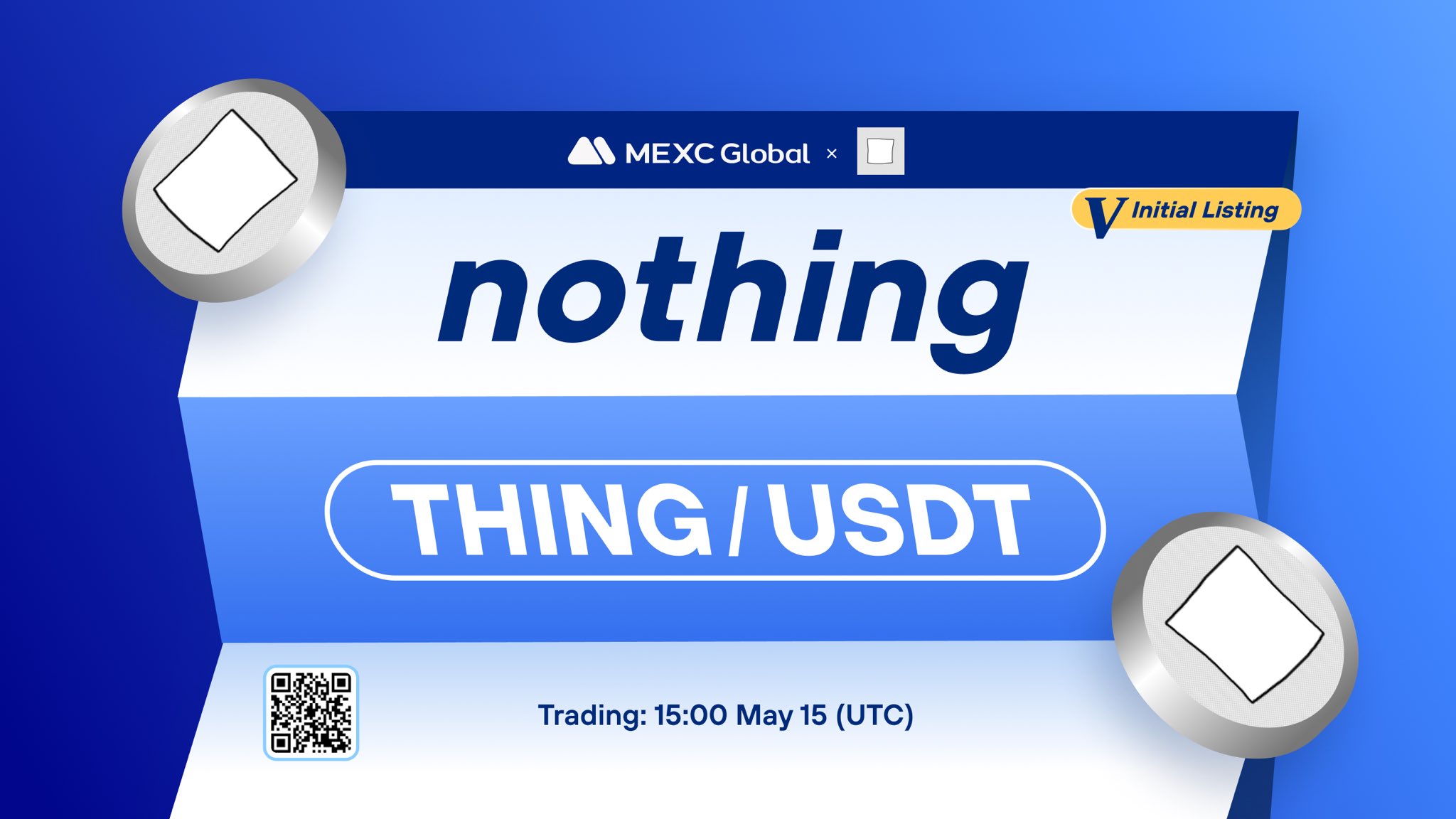
In the rapidly evolving landscape of artificial intelligence and blockchain technology, traditional computing infrastructure faces critical limitations: expensive centralized cloud services, underutilized computing resources, and barriers to accessing powerful AI workloads. NodeGo emerges as a groundbreaking solution that transforms idle computing power into a decentralized network powering the future of AI and spatial computing.
This comprehensive guide explores NodeGo’s revolutionary approach to democratizing computing resources, the utility of its native GO token, and how this innovative DePIN (Decentralized Physical Infrastructure Network) project is reshaping the way we think about distributed computing. Whether you’re interested in contributing your unused computing power to earn rewards or seeking affordable access to AI infrastructure, this article provides everything you need to understand NodeGo’s potential in the decentralized computing revolution.
Key Takeaways
- NodeGo is a decentralized computing network that transforms idle CPU, GPU, and bandwidth resources into a profitable marketplace for AI and spatial computing applications
- GO Token serves as the native cryptocurrency with a fixed 1 billion supply, enabling transactions, staking rewards, and DAO governance within the ecosystem
- Multiple earning opportunities through Telegram bot, browser extension, desktop client, or dedicated hardware nodes make participation accessible to users of all technical levels
- Community-first tokenomics allocates 29% of tokens directly to community members, demonstrating strong commitment to decentralization compared to traditional projects
- Comprehensive DePIN platform supports AI model training, gaming infrastructure, spatial computing, and data processing at significantly lower costs than centralized cloud services
- Available on MEXC exchange with step-by-step purchase options for accessing GO tokens and participating in the decentralized computing revolution
Table of Contents
What is NodeGo and GO Token?
NodeGo is a community-driven decentralized network that enables individuals and organizations to monetize their idle computing resources while providing businesses with affordable access to distributed computing power. Built on blockchain technology, NodeGo creates a secure and transparent marketplace where users can share unused CPU, GPU, and bandwidth resources to power demanding applications like AI workloads, spatial computing, and gaming infrastructure.
The GO token serves as the native cryptocurrency that powers the entire NodeGo ecosystem, facilitating transactions, enabling governance participation, and incentivizing network participants. With a fixed total supply of 1 billion tokens, GO operates as both a utility token for accessing computing resources and a governance token for shaping the network’s future through decentralized autonomous organization (DAO) mechanisms.
NodeGo addresses the fundamental inefficiency in today’s computing landscape where millions of devices remain underutilized while businesses pay premium prices for centralized cloud services. By connecting these two sides of the market, NodeGo creates a win-win ecosystem where contributors earn rewards for sharing resources and businesses access scalable computing power at significantly reduced costs.
NodeGo Platform vs GO Token: Key Differences
| Aspect | NodeGo | GO Token |
|---|---|---|
| Nature | Complete decentralized computing platform and ecosystem | Native cryptocurrency that powers the NodeGo network |
| Function | Provides infrastructure for sharing computing resources, AI workloads, and spatial computing | Enables transactions, staking, governance, and network security |
| Components | Network infrastructure, node operators, businesses, developers, DAO governance | Utility token with fixed 1 billion supply |
| Purpose | Create decentralized marketplace for computing power | Facilitate payments, incentivize participation, secure network |
| Use Cases | AI model training, gaming infrastructure, bandwidth sharing, data processing | Pay for resources, stake for rewards, vote on proposals, earn from contributions |
What Problems Does NodeGo AI Solve?
1. The Computing Resource Crisis
The modern digital economy faces a fundamental paradox: while businesses struggle with expensive and inflexible computing infrastructure, millions of devices worldwide sit idle with unused processing power. NodeGo addresses this critical market inefficiency by creating a bridge between supply and demand in the computing resource market.
2. High Infrastructure Costs and Centralization Risks
Traditional cloud computing services impose significant barriers through hefty upfront costs, restrictive long-term contracts, and inflated pricing models. Businesses, particularly startups and small enterprises, often cannot access the computing power they need for AI development, data processing, or gaming applications due to these prohibitive costs. Additionally, centralized infrastructure creates single points of failure, leading to increased downtime, security vulnerabilities, and dependence on large corporations.
3. Underutilized Computing Resources
Millions of personal computers, gaming rigs, and enterprise devices operate far below their capacity, representing massive untapped potential. These idle resources could power next-generation applications if properly aggregated and coordinated. NodeGo transforms this wasted capacity into valuable economic opportunities for device owners while creating an affordable alternative to centralized computing services.
4. Limited Access to AI and Advanced Computing
The current infrastructure model creates barriers for innovation, particularly in AI development and spatial computing applications. Developers and researchers often cannot access the computational resources needed to train machine learning models, process large datasets, or run complex simulations, limiting technological advancement and innovation.

The Story Behind NodeGo Foundation
NodeGo emerged from a vision to democratize computing power and create a more equitable digital economy where everyone can participate in and benefit from technological advancement. The project was founded on the principle that computing resources should be accessible to all, not just large corporations with significant capital.
The founding team recognized that the future of computing lies in decentralization, where community-driven networks could provide more resilient, cost-effective, and inclusive alternatives to traditional infrastructure. By leveraging blockchain technology and creating incentive mechanisms that reward resource sharing, NodeGo aims to build a global network that transforms idle computing capacity into valuable economic opportunities.
The project’s mission centers on empowering individuals to monetize their unused computing power while providing businesses with affordable access to distributed resources. This approach not only reduces costs and increases efficiency but also creates a more sustainable model for technological growth that benefits participants across the entire ecosystem.

NodeGo AI Platform Features and GO Token Benefits
1. Decentralized Network Infrastructure
NodeGo operates on a globally distributed network that spreads workloads across multiple nodes, providing superior stability, reduced latency, and enhanced resilience compared to centralized solutions. The blockchain-powered infrastructure ensures transparency, security, and trust without requiring intermediaries, creating a robust foundation for decentralized computing services.
2. Multiple Contribution Methods
The platform offers flexible participation options to accommodate different user preferences and technical capabilities. Users can contribute through a lightweight Telegram bot, browser extension for bandwidth sharing, desktop client for full computing power contribution, or by investing in dedicated hardware nodes for maximum earning potential. This accessibility ensures that anyone can participate regardless of their technical expertise or available resources.
3. Comprehensive Resource Marketplace
NodeGo creates a dynamic marketplace for computing resources, including CPU and GPU power for AI computations and rendering tasks, bandwidth sharing for VPNs and content delivery networks, and storage capacity for decentralized applications. This comprehensive approach maximizes the utility of contributed resources while providing businesses with flexible access to the computing power they need.
4. Community-Driven Governance
The platform operates through a decentralized autonomous organization (DAO) that empowers users to participate in decision-making processes. Community members can propose and vote on network improvements, policy changes, and resource allocation, ensuring that the platform evolves according to the collective needs and insights of its participants.
5. Advanced Incentive and Reputation System
NodeGo employs a sophisticated reward mechanism that fairly compensates contributors based on the quality and reliability of their resources. The reputation system tracks node performance, uptime, and trustworthiness, ensuring that the network maintains high standards while providing higher rewards for reliable participants.
NodeGo DePIN Use Cases
1. AI and Machine Learning Applications
NodeGo provides essential infrastructure for training machine learning models, running inference tasks, and processing large datasets efficiently. The distributed network enables researchers and developers to access powerful computing resources without the prohibitive costs of traditional cloud services, accelerating AI development and making advanced technologies more accessible to smaller organizations and independent developers.
2. Spatial Computing and Extended Reality
The platform supports applications in virtual reality, augmented reality, and 3D rendering that require significant computational power for real-time processing. NodeGo’s distributed architecture provides the scalable resources needed for immersive experiences, spatial computing applications, and metaverse development, enabling creators to build sophisticated virtual environments without massive infrastructure investments.
3. Gaming Infrastructure and Content Creation
Gaming companies and content creators can leverage NodeGo’s network for distributed rendering, server hosting, and computational tasks required for modern gaming experiences. The platform enables smaller game developers to access enterprise-level computing power for game development, testing, and deployment, democratizing access to advanced gaming infrastructure.
4. Data Processing and Analytics
Businesses can utilize NodeGo’s network for big data processing, analytics, and computational tasks that require significant processing power. The distributed nature of the network provides cost-effective solutions for data-intensive operations while maintaining security and reliability standards required for enterprise applications.
NodeGo Tokenomics and GO Token Distribution
NodeGo’s GO token has a fixed total supply of 1,000,000,000 tokens, designed to ensure long-term sustainability and fair distribution across the ecosystem:

• Community Allocation: 290,000,000 tokens (29%)
- Future Incentives: 140,000,000 (14%) for retroactive rewards, grants, and ecosystem initiatives
- Node & Infrastructure Rewards: 50,000,000 (5%) for node operators and infrastructure contributors
- Airdrop One: 100,000,000 (10%) for fair distribution and early user onboarding
• Foundation & Ecosystem Growth: 250,000,000 tokens (25%)
- Managed by DAO for infrastructure upgrades, partnerships, research & development
- Ensures long-term sustainability and transparent fund distribution
• Early Investors: 280,000,000 tokens (28%)
- Strategic backers with 1-year cliff and 1-year vesting period
- Locked tokens cannot be staked until fully vested to ensure alignment
• Core Contributors: 180,000,000 tokens (18%)
- Current and future team members with 1-year cliff and 3-year vesting
- Locked tokens cannot be staked until vested to maintain long-term commitment
The distribution model prioritizes community ownership while ensuring sustainable development through proper incentive alignment and vesting schedules that prevent market manipulation.
GO Token Functions in NodeGo Ecosystem
1. Powering Network Transactions
GO token serves as the primary medium of exchange for accessing decentralized computing resources within the NodeGo ecosystem. Users pay with GO tokens for CPU and GPU power, bandwidth usage, storage capacity, and specialized services like AI workloads and spatial computing applications. While businesses can initially pay in USD, USDC, or other supported assets, all transactions are ultimately settled in GO tokens, creating consistent demand and utility for the native token.
2. Staking and Rewards Mechanism
Node operators must stake GO tokens to participate in the network and contribute their computing resources, ensuring network reliability and preventing malicious activity. Stakers earn rewards proportional to their contributions, with higher staking levels providing access to premium workloads and better reward rates. The staking mechanism creates economic security by requiring participants to have skin in the game while incentivizing long-term commitment to network health.
3. Network Governance and DAO Participation
GO token holders participate in decentralized governance through voting on network upgrades, incentive mechanisms, protocol improvements, funding allocations, and strategic partnerships. This governance model ensures that NodeGo remains community-driven and decentralized, with decisions made transparently by stakeholders who have genuine interest in the network’s success.
4. Network Security and Validation
The token plays a crucial role in network security through staking requirements and slashing mechanisms that penalize dishonest behavior. Validators must accurately report resource usage and facilitate transactions correctly, with automated slashing mechanisms enforcing security protocols in real-time as the network becomes increasingly decentralized.
NodeGo Roadmap and Future Development
NodeGo’s roadmap focuses on expanding its decentralized computing ecosystem to become the leading infrastructure for AI and DePIN applications. The platform aims to scale its global node network, integrating more sophisticated AI workloads and spatial computing applications while maintaining its community-driven approach to governance and development.
Future developments include enhanced automation of network operations, improved resource allocation algorithms, and expanded integration with emerging technologies in artificial intelligence and extended reality. The project plans to transition toward full decentralization, with automated governance mechanisms and community-driven protocol upgrades that ensure long-term sustainability and adaptability.
As the demand for decentralized computing continues to grow, NodeGo is positioned to capitalize on the convergence of AI, blockchain, and distributed computing technologies. The platform’s focus on accessibility, fairness, and efficiency creates a foundation for sustainable growth that benefits both individual contributors and enterprise users seeking cost-effective alternatives to traditional cloud infrastructure.

NodeGo vs Competitors: DePIN Network Comparison
NodeGo operates in the growing DePIN (Decentralized Physical Infrastructure Network) and distributed computing space, competing with other projects in GPU rendering, decentralized cloud computing, and distributed infrastructure. However, NodeGo differentiates itself through several key advantages that position it uniquely in the market.
NodeGo’s Competitive Advantages:
NodeGo offers accessible participation through multiple contribution methods, from simple browser extensions to dedicated hardware nodes, making it easier for everyday users to participate compared to competitors that often require technical expertise or specialized hardware. The platform’s comprehensive resource marketplace supports not just computing power but also bandwidth and storage, creating a more holistic ecosystem than single-purpose networks.
The project’s community-first tokenomics model allocates 29% of tokens directly to community members, demonstrating significant commitment to decentralization with 29% community allocation who reserve larger portions for teams and investors. NodeGo’s focus on AI and spatial computing applications positions it at the forefront of emerging technologies, while its user-friendly interfaces and governance model create a more inclusive environment for both contributors and businesses.
Unlike competitors that focus on specific use cases, NodeGo’s flexible architecture supports diverse applications from AI model training to gaming infrastructure, creating multiple revenue streams and reducing dependence on any single market segment. This versatility, combined with transparent governance and fair reward distribution, positions NodeGo as a community-focused alternative in the decentralized computing landscape.

Where to Buy GO Token
MEXC stands as the premier platform for trading GO tokens, offering a comprehensive cryptocurrency exchange experience with robust security features and competitive trading conditions. As a leading global exchange, MEXC provides high liquidity for GO token transactions, ensuring efficient trade execution with minimal slippage for both new and experienced traders.
The platform’s user-friendly interface makes it accessible for beginners while providing advanced features that experienced traders require. MEXC’s commitment to security, combined with 24/7 customer support and competitive trading fees, makes it an ideal choice for participating in the NodeGo ecosystem and accessing GO token opportunities.
How To Buy GO Token
Step-by-Step Purchase Guide on MEXC:
- Create Account: Visit MEXC website and complete registration with email verification
- Complete KYC: Submit identity verification documents for account security and compliance
- Deposit Funds: Transfer USDT or other supported cryptocurrencies to your MEXC wallet
- Navigate to Trading: Search for “GO” in the trading section to locate GO/USDT pairs
- Place Order: Choose market order for immediate purchase or limit order for specific price
- Confirm Transaction: Review order details and execute the trade
- Secure Storage: Keep tokens in MEXC wallet or transfer to personal wallet for additional security
Conclusion
NodeGo represents a paradigm shift in how we approach computing infrastructure, transforming idle resources into valuable economic opportunities while democratizing access to powerful AI and spatial computing capabilities. Through its innovative DePIN model, the platform creates a sustainable ecosystem where individual contributors earn rewards for sharing unused computing power, and businesses access affordable, scalable resources without the constraints of traditional cloud services.
The GO token serves as the cornerstone of this decentralized economy, facilitating transactions, enabling governance participation, and ensuring network security through carefully designed tokenomics that prioritize community ownership and long-term sustainability. With its comprehensive approach to distributed computing, user-friendly participation methods, and strong foundation in blockchain technology, NodeGo is positioned to play a crucial role in the future of decentralized infrastructure.
As artificial intelligence and spatial computing continue to drive demand for computational resources, NodeGo’s community-driven approach offers a compelling alternative to centralized infrastructure, creating value for all participants while advancing the broader vision of a more equitable and accessible digital economy.
Join MEXC and Get up to $10,000 Bonus!
Sign Up


